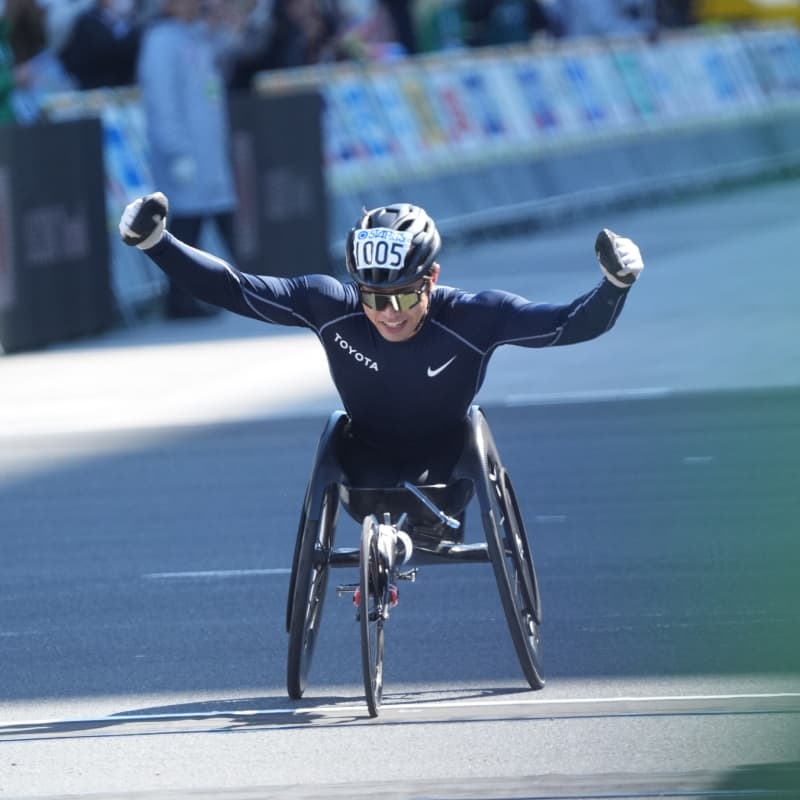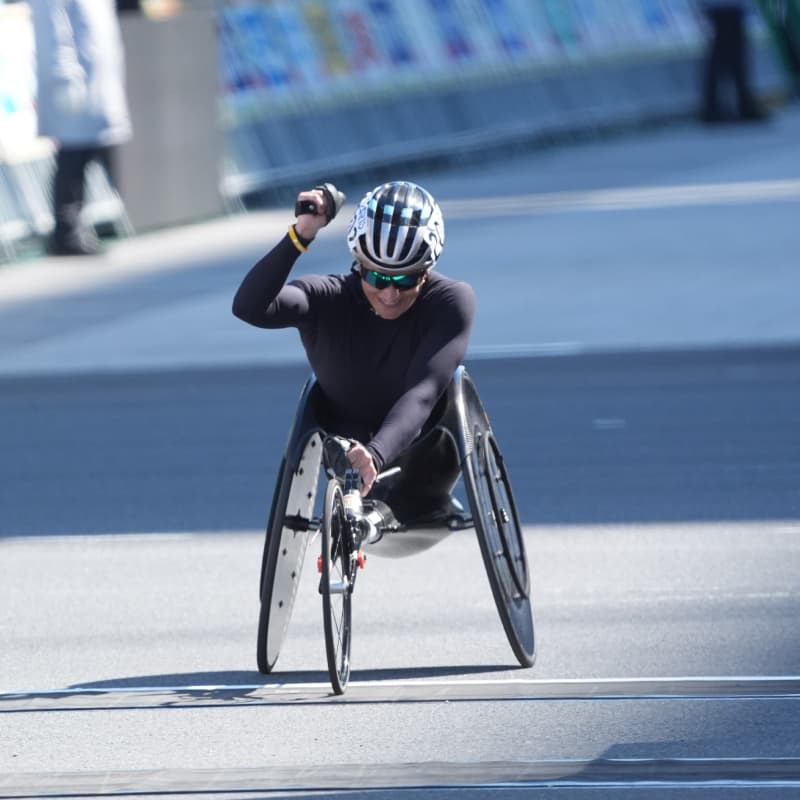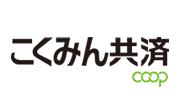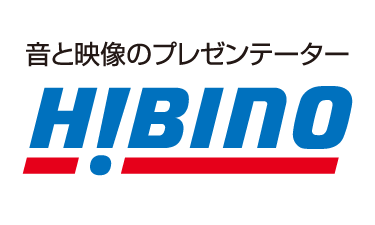- JP
EN
General Information
Information about the Tokyo Marathon 2025 for anyone involved.
- Elite Race
- Elite Wheelchair Race
Elite Wheelchair Race


The Wheelchair Race as an International Event
Since Tokyo Marathon 2016, the wheelchair marathon race (T53 & T54) has been officially sanctioned by the World Para Athletics.
Additionally, since Tokyo Marathon 2017, the wheelchair race has been an official event of the Abbott World Marathon Majors (AbbottWMM) Wheelchair Marathon Race Series, for which the point system applies.
Race Information
| 1) | Category: | Wheelchair marathon (Elite) |
| 2) | Sanctioned by: | World Para Athletics |
| 3) | Course: | Tokyo Metropolitan Government Building -- Suidobashi -- Ueno-hirokoji -- Kanda -- Nihombashi -- Asakusa Kaminarimon Gate -- Ryogoku -- Monzen-nakacho -- Ginza -- Tamachi -- Hibiya -- Tokyo Station/Gyoko-dori Ave. (This course is certified by the JAAF, AIMS and World Athletics.) |
| 4) | IPC classes: | T53・T54 |
| 5) | Time limits: | Men - 1 hours 50 minutes; Women - 2 hours |
| 6) | Capacity: | 30 racers |
Wheelchair Elite Race Preview
Wheelchair Race Director Masazumi Soejima
The Paris Paralympics were held last summer, and now, in 2025, we are in the first year of a new cycle, ramping up for the 2028 Olympics in Los Angeles. In 2025, the Tokyo Marathon will become a major wheelchair marathon for the first time to be an important race that will provide a glimpse of what's to come. We want to put on an engaging race that provides a window into the future of wheelchair marathons, so we've invited eight male and eight female elite racers from around the world.
Unfortunately, undisputed champion Marcel Hug (Switzerland), who won both the Tokyo Marathon 2022 and 2023, took the gold medal in the Paris Paralympics last year, and claimed victory in AbbottWMM Series XVI, is injured and will not be able to participate. However, we have invited members who will be able to put on a gripping race even without Hug.
We reached out to two athletes in China who have been producing exceptional results not only in track events but also in marathons in recent years. One is Jin Hua, a rising star who won the silver medal at the Paris Paralympics and won the Oita International Wheelchair Marathon for the first time last November. The Paris Paralympics has been described as having the hardest course of all time, but until the middle of the race, the powerful Jin Hua stayed wheel-to-wheel with Hug, who eventually won the marathon. He is also strong at the last sprint. The other Chinese invitee is Luo Xingchuan, who finished in 6th place in the Paris Paralympics and reached 3rd place in the Oita International Wheelchair Marathon. The Tokyo Marathon 2025 will be a first for both athletes, so we don't know how familiar they are with the course, but their racing will be something to keep a close eye on.
Another overseas invitee is Daniel Romanchuk (U.S.A.). He finished in 4th place in the Paris Paralympics and has maintained a constant presence among top finishers in the Major marathons. His racing is consistently powerful, and he has competed in two previous Tokyo Marathons, placing 2nd both times. Hopes are high for this being his first victory.
On the other hand, the veteran from Korea, YOO Byunghoon, will return to the Tokyo Marathon 2025, making his first race since 2019. We expect him to deliver a strong performance
Japanese invitees include Tomoki Suzuki (Toyota), who won last year's marathon and the bronze medal at the Paris Paralympics. We have also invited Ryota Yoshida (SUS), who finished in 8th place last year, Sho Watanabe (TOPPAN), who took 6th place in AbbottWMM Series XVI, and Kota Hokinoue (LINE Yahoo), who finished in 9th place.
Suzuki won his first medal at the Paralympics and has proven a tough competitor as one of Japan's aces. However, he lost the gold to Jin in both the Paris Paralympics and the Oita International Wheelchair Marathon, both frustrating defeats. We look forward to seeing how much he has recovered and improved himself through winter training and whether it will be enough to make a comeback against Jin.
My impression of Jin is that he tends to stick with the pack and then, towards the end of the race, uses a burst of speed to pull away. This means we'll probably be able to see a very different race than we would have Hug. He usually separates himself from the pack from the very start. I think it's likely that Suzuki and Romanchuk will make a quick start, and Jin and Luo will keep apace with them. One thing to keep an eye on will be whether Yoshida and Watanabe keep up as well.
Although not invited athletes, I also hope to see some determined racing by young, rising racers such as Hiroki Kishizawa (Hitachi Solutions) and Rinpei Sasaki (ANAORI.A.C). Chinese racer Zhang Ying finished in 11th place in the Tokyo Paralympics marathon and has competed in track events, such as the 100 m, in which he took 6th place in the Paris Paralympics. A versatile athlete, he may just bear down on the lead pack.
So, overall, it looks like the lead pack may end up being a large one, with seven or eight racers. That means we might see one of the unique features of wheelchair racing: rotation. In a rotation, different racers take turns in the lead position. There will also probably be athletes who try intricate techniques such as using uphill and downhill bridge slopes or corners to whittle down the group. You won't want to look away for even a moment as you watch who takes which positions. I look forward to seeing an engaging race that stays close until the very end, with the last sprint determining the victory.
■ A lineup of the world's top women racers
We've invited eight women racers who consistently finish in top positions in Major marathons, including three medalists from the Paris Paralympics. We hope to see some of the world's finest competition and high-speed racing, as this marathon will provide an up-close view of the high level of women's wheelchair marathon competition.
The linchpin of the race will be Swiss athlete Catherine Debrunner. Last year, she won four Major marathons along with AbbottWMM Series XVI. Debrunner has the power to launch from the very start and race the whole course on her own. Her racing at the Paris Paralympics, which had a particularly tough course, was an overwhelming sight to see. She has no weaknesses, powerful both in uphill and downhill racing. This will be her first time competing in the Tokyo Marathon. You'll want to keep a close eye on the racing of this world record holder.
Other overseas invited athletes include Paris Paralympics silver medalist Madison de Rozario (Australia), bronze medalist Susannah Scaroni (U.S.A.), 4th place finisher Manuela Schär (Switzerland), and 5th place finisher Zhou Zhaoqian (China). Eden Rainbow-Cooper (U.K.) failed to finish the Paris Paralympics marathon due to a back injury in the later stages of the race, but she finished in 2nd place in last year's Tokyo Marathon, her first time competing. All of these athletes have extensive experience and track records.
From Japan, we've invited Wakako Tsuchida (Will Raise), who finished in 6th place in the Paris Paralympics, and Tsubasa Nakamine (maiden name: Kina) (Misato Swimming School), who finished in 12th place. I hope they gain ground on the overseas competitors and show us some powerful racing.
I expect to see Debrunner getting a quick start, but the women athletes are all very familiar with each other, so I'm sure they're all working on their own strategies. If the athletes keep up with Debrunner and a pack forms in the early part of the course with lots of uphill and downhill slopes, all the racers have the power needed to compete with each other in the flat course section that follows. If they can keep Debrunner under control and form a good rotation, it might be a tight race all the way up to the last sprint before the race finishes.
If, on the other hand, Debrunner takes the lead at the start and separates from the rest, and a four or five person pack forms behind her, we might see some tactical competition within the group as they try to catch up with Debrunner. Either way, we'll be able to see an exciting women's race.
■ Keep a close eye on the battle at the 10 km point
One of the most appealing aspects of wheelchair racing is its sense of speed. Hug holds the record for fastest men's finish in the race's history with a time of 1:20:57, and Schär holds the record for women with a time of 1:36:43. Both of these records were set in the 2023 race. Finishing times will, of course, be affected by the weather, but if conditions are good, what kinds of records will we be seeing this year, when there will be so many powerful first-time competitors?
We have set up two "bonuses" this year as well at the 10 km mark to help ensure a speedy race. One is the "AbbottWMM Bonus Point." The man and the woman who passed this 10 km point in first place will each earn 8 points. The other bonus is the Tokyo Marathon's own "Marathon Record-breaking Sprint Time Bonus." Prize money will be awarded to the top three men and women who beat the 10 km target time set based on each gender's world record (first place: 150,000 yen, second place: 100,000 yen, third place: 50,000 yen). The target times are 18 minutes 50 seconds for men and 21 minutes 45 seconds for women. These are ambitious targets, but we're hoping the racers will actively compete for these bonuses with decisive racing that takes advantage of the downward slope of the course over the first 5 km.
Enjoy every minute of the Tokyo Marathon 2025 wheelchair marathon, from the battle for the 10 km mark to the speedy and dynamic racing all the way to the finish line.
All Invited Athletes:
MEN (8athletes)
WOMEN (8 athletes)
(As of January 23, 2025)
All Wheelchair Elite Athletes
(As of January 23, 2025)
Wheelchair Race Director,
Masazumi Soejima

Born in 1970. At the age of 23, his spinal cord was injured due to an accident while he was working at the iron factory, which was his family business. Since then, he has been confined to a wheelchair, and learned about the disabled sports while he was in the hospital. He then started to be attracted to the fun of sports and started take up wheelchair marathoning.
Since 2007, he’s been participating in the World Marathon Majors races and has won many races, including Tokyo, Boston, New York City and Berlin marathons.
In April 2014, while still competing as a world’s top athlete himself, he established his own foundation to support the challenges of children in wheelchairs by providing them wheelchair racing opportunities, including his own coaching, which allow them to pursue the goal of becoming a world-class athlete.
Career Highlights:
| 2007-2009, 2011, 2013 | Tokyo Marathon | 1st |
| 2004 | Athens Paralympics 4 x 400m relay | 3rd |
| 2007 | IPC World Championships in Osaka 1500m | 3rd |
| 2012 | London Paralympic Marathon | 4th (Top Japanese) |
| 2011 | TCS New York City Marathon | 1st |
| 2007, 2011 | Boston Marathon | 1st |



























